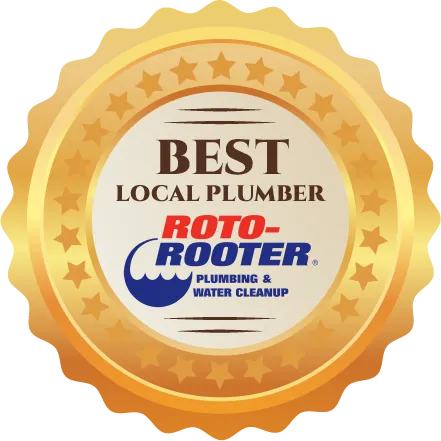Hard Water Issues & Drain Performance in St. George
In St. George, residents often face the challenge of hard water, which can significantly impact local plumbing systems. Beyond the visible scale build-up on fixtures, mineral deposits from the region’s water supply can lead to more severe problems, such as impaired drainage performance. This often results in slow drains, frequent clogs, and persistent soap scum, exacerbated by the area’s specific water composition. Understanding the local water quality and its effects on plumbing is crucial for homeowners. Interested in discovering effective solutions and preventative measures tailored to St. George’s unique conditions? Let’s delve deeper.
Understanding Hard Water and Its Components
In Southern Utah, particularly in St. George and surrounding Washington County, hard water is a common issue. The region’s water supply contains high levels of dissolved minerals, primarily calcium and magnesium, which accumulate as water flows through the area’s sandstone and desert mineral deposits.
Residents often face challenges such as reduced soap lather, leaving residue on skin, hair, and dishes—one of the most frequent complaints in the area.
Additionally, mineral scale buildup is common on faucets, showerheads, and inside appliances like dishwashers and washing machines. Over time, these deposits can reduce efficiency, shorten appliance lifespans, and lead to higher maintenance costs.
In St. George, where municipal water is naturally high in mineral content, these problems are especially noticeable without proper treatment.
To determine if you have hard water, you can perform a simple water hardness test—readily available at local hardware stores or through plumbing service providers.
Understanding your water quality can help you decide if investing in a water softening system is worthwhile, potentially saving you from long-term inconveniences, costly repairs, and premature appliance replacements.
The Impact of Hard Water on Plumbing Systems
In areas like Southern Utah, including St. George, Washington County, where groundwater sources are prevalent, hard water is a common challenge for plumbing systems. The high mineral content, particularly calcium and magnesium, often leads to the accumulation of mineral deposits inside pipes.
These deposits, known as scale, can significantly reduce water flow and increase the pressure on plumbing systems. This heightened pressure might result in leaks or even burst pipes, leading to expensive repairs.
In regions such as Southern Utah, hard water is also notorious for shortening the lifespan of plumbing fixtures and appliances by causing clogs and corrosion. Water heaters are especially at risk, as scale buildup reduces their efficiency, forcing them to work harder and consume more energy.
Ignoring the effects of hard water in St. George and the surrounding high desert communities can lead to increased utility bills and frequent maintenance issues. It’s crucial to address hard water challenges to ensure the longevity and efficiency of your plumbing system in such regions.
Identifying Signs of Hard Water in Your Home
Have you ever noticed that your soap doesn’t lather well, or your dishes come out of the dishwasher with spots? In places like St. George, many residents face the challenge of hard water due to the region’s high mineral content. This can lead to a range of household problems.
Keep an eye out for white, chalky residue on your faucets and showerheads, as well as crusty buildup around your sink and tub—these are clear indicators of mineral deposits, primarily from calcium and magnesium.
Additionally, laundry in the area might feel rough or appear dingy, despite using detergent. If your water heater is struggling to maintain hot water, mineral buildup could be the culprit.
Recognizing these signs early can help you address hard water issues effectively in your home.
Common Drainage Problems Caused by Hard Water
In regions like Southern Utah, including St. George and Washington County, where hard water is a prevalent issue, drainage problems often arise as a frustrating consequence.
Over time, mineral deposits such as calcium and magnesium build up in your pipes. This accumulation restricts water flow, leading to slow draining sinks and tubs. You might notice water pooling around your drains, taking longer to disappear than usual.
In these areas, hard water is notorious for causing soap scum to form more easily. This sticky residue clings to pipes and fixtures, compounding the problem by reducing their effectiveness.
As these deposits accumulate, they can lead to clogs, requiring frequent cleaning or even professional intervention.
Furthermore, hard water in St. George and the surrounding high desert communities can damage appliances and plumbing fixtures, shortening their lifespan.
Solutions and Treatments for Hard Water Issues
In regions with high mineral content in water, such as Southern Utah, including St. George and Washington County, hard water issues can be particularly challenging.
However, several effective solutions can help you manage these problems.
One popular option is installing a water softener, which removes minerals like calcium and magnesium. This not only makes your water softer but also extends the life of your appliances, which is crucial in areas where mineral deposits are a common problem.
Ion exchange systems, often used in these regions, can be installed by professionals to ensure optimal performance.
Alternatively, residents might explore descaling agents to address the mineral deposits that frequently clog pipes and affect appliances. These products are available in liquid or powder form and can be used regularly to maintain clear plumbing, a common concern in areas with hard water.
For those seeking a natural approach, vinegar or lemon juice can be used to dissolve limescale build-up on fixtures.
These household items are effective, eco-friendly, and readily available, making them a practical choice for many households in Southern Utah dealing with hard water challenges.
Preventative Measures for Maintaining Drain Efficiency
In St. George, hard water is a common challenge that can affect the efficiency of your drains. However, you can maintain optimal drain performance with some targeted preventative measures tailored to local conditions.
Start by regularly cleaning your drains with a mixture of vinegar and baking soda, which is effective at breaking down the mineral deposits prevalent in this area. Installing a water softener is another wise investment, as it can significantly reduce mineral buildup before it enters your plumbing system, a proactive step that’s especially beneficial given the hard water conditions in St. George.
Be vigilant about slow drainage and address it promptly; a drain snake or plunger can often clear minor blockages before they become major issues.
Lastly, consider scheduling routine inspections with a local plumbing professional who understands the unique challenges posed by St. George’s water quality.
Conclusion
To tackle the hard water issues prevalent in St. George, it’s essential to first identify the signs such as slow drains and soap scum accumulation. These problems are largely due to the area’s high mineral content in the water supply, which leads to mineral buildup, restricting water flow and causing damage to plumbing systems. To mitigate these issues, residents can install water softeners tailored for the local water conditions, regularly clean their drains, and use vinegar to dissolve scale effectively. By maintaining your plumbing system, you can ensure efficient drainage and extend the lifespan of your fixtures and appliances. Don’t let St. George’s hard water dominate your home; take proactive steps today!
Tags





